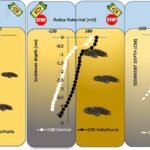By Tania Bawden*
Australia – Scientists are exploring whether unique Australian marine bio-sources could enhance vaccines, with active ingredients in local sea cucumbers identified as holding promise.
In Asia, sea cucumbers are often referred to as marine ginseng given their use in traditional medicine.
Researchers from Flinders University have chosen a selection of Australian Holothurians, commonly known as sea cucumbers (trepang or Bêche-de-mer), for testing as potential adjuvants.
Adjuvants are compounds that act as turbochargers when added to vaccines, making them more effective.
Naturally occurring substances called saponins are found in the body wall and the intestines of the sea cucumber. Saponins act like natural detergents and are commonly used to make drinks, confectionery and cosmetics and add sweetness, bitterness, foaming and emulsifying qualities to products.
Saponins have also been reported to have multiple health benefits including decreased blood clotting, cholesterol and sugar levels; and immune system stimulation with anti-viral, anti-fungal and anti-cancer activity.
Australian marine waters host a high diversity of sea cucumber fauna, currently with over 60 species of the family Holothuriidae reported.
Researchers at the Flinders Centre for Marine Bioproducts Development (CMBD ) at Flinders University have discovered more than 100 saponins from a selection of local sea cucumber species, with almost half being completely new discoveries.
Stay Always Informed
Join our communities to instantly receive the most important news, reports, and analysis from the aquaculture industry.
The Centre’s Director, Professor Wei Zhang, says Flinders researchers have identified new and existing Australian sea cucumber species, saponins and other active ingredients.
“Sea cucumber saponins have many health benefits. They stimulate immunity, enhance antibody production and may have potential as vaccine adjuvants,” says Professor Zhang.
“Utilising green chemistry and biorefinery technologies to optimise extraction, isolation and purification of active ingredients, we are currently lab-scale and product development ready. We are very happy to be attracting industry and scale up partners, and research collaborators.”
Led by Flinders University Professor Wei Zhang, Emeritus Professor Chris Franco and Associate Professor Kirsten Heimann, with the support of the recently established Australian Research Council Industrial Transformation Training Centre for Green Chemistry in Manufacturing (ARC ITTC), a collaboration between the CMBD and local company Vaxine Pty Ltd is testing these sea cucumber saponins for vaccine adjuvant activity.
Vaxine’s founder and research director, Nikolai Petrovsky, who is also holds academic status in the College of Medicine and Public Health, has been involved in development of many vaccines, including a COVID-19 vaccine candidate that is currently in human trials.
Professor Petrovsky says that there is a major ongoing need for new adjuvants and more research is required into how adjuvants function.
“Adjuvants have lagged behind other vaccine research areas, with only a limited number of adjuvants currently approved for human use,” he says.
“The ideal adjuvant needs to maximise immunogenicity without compromising vaccine safety and tolerability. The hope is this partnership with CMBD will lead to discovery of new adjuvants, thereby increasing choices in the future.”
Vaxine’s adjuvant research activities are supported by funding from the US National Institutes of Health.
Professor Zhang is leading the Marine Bioproducts Cooperative Research Centre (MB-CRC) bid which involves a consortium of over 70 research and industry partners. This bid has successfully progressed to stage 2 of the Australian Government’s CRC selection process.
“The potential of developing Australian sea cucumber-derived saponins as high value marine bioproducts to be used as vaccine adjuvants is an exemplary project in the exciting MB-CRC endeavour,” Professor Zhang says.
*Source: Flinders University
Editor at the digital magazine AquaHoy. He holds a degree in Aquaculture Biology from the National University of Santa (UNS) and a Master’s degree in Science and Innovation Management from the Polytechnic University of Valencia, with postgraduate diplomas in Business Innovation and Innovation Management. He possesses extensive experience in the aquaculture and fisheries sector, having led the Fisheries Innovation Unit of the National Program for Innovation in Fisheries and Aquaculture (PNIPA). He has served as a senior consultant in technology watch, an innovation project formulator and advisor, and a lecturer at UNS. He is a member of the Peruvian College of Biologists and was recognized by the World Aquaculture Society (WAS) in 2016 for his contribution to aquaculture.






